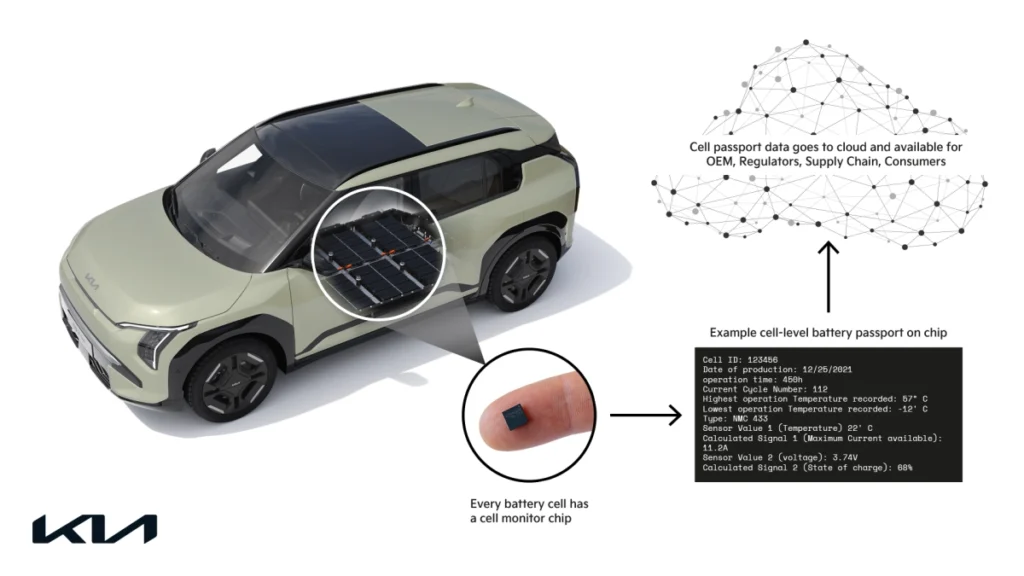Kia Europe has launched the first public trial of cell-level battery passport technology as part of its preparation for upcoming European regulations. The program uses a Kia EV3 equipped with a Dukosi cell-monitoring system to capture live health data for each battery cell. That information is uploaded to a digital battery passport, enabling real-time state of health tracking, diagnostic insights, and end-to-end traceability throughout the battery lifecycle. Kia anticipates that this approach will extend battery life, reduce maintenance costs, and increase confidence in used electric vehicle transactions.
“Kia aims to set a new standard for customers regarding battery transparency and performance,” said Marc Hedrich, President and CEO at Kia Europe. “Through testing cell-level battery passports, we gain insights on what ownership benefits we can offer our customers. On top of advantages such as extended battery life, we will be building on a relationship of trust as well.”
The EV3 test vehicle was shipped from Korea to Germany in February and integrates cell-level monitoring that feeds live data into Kia’s digital passport system. Through the vehicle’s infotainment interface and a TNO-supported data-sharing environment, drivers, technicians, and regulators can access up-to-date battery health information. Automated updates follow any repair work, ensuring traceability across the battery’s life.
This trial is part of an EU-wide collaborative research initiative coordinated by Delft University of Technology and Hyundai Motor Group, with technical integration managed by Hyundai Mobis. Additional contributors include the EU-funded DATAPIPE project and ARN, the Dutch end-of-life vehicle and battery treatment organization. By demonstrating cell-level monitoring, targeted cell-specific repairs, and transparent data sharing, Kia aims to establish a benchmark for sustainable, cost-effective EV battery management.
Source: Kia Press Release
















